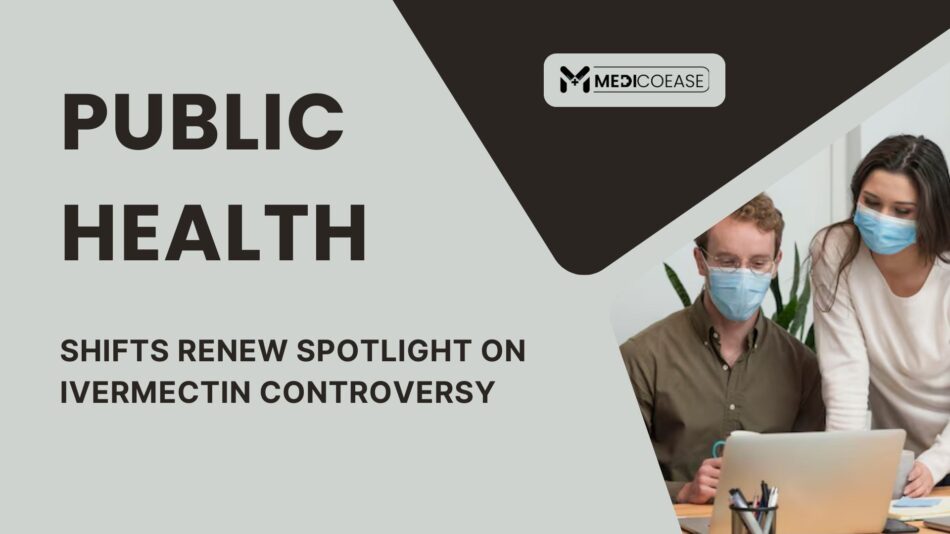In 2025, public health dynamics in the U.S. have reignited debates around ivermectin covid treatments. Shifting policy frameworks, evolving consumer perceptions, and high-profile media coverage have brought ivermectin back into the spotlight. Once primarily known as an antiparasitic, ivermectin’s association with COVID-19 has continued to polarize healthcare discussions, linking policy shifts, trust challenges, and consumer curiosity into a complex public health dialogue.
This blog explores the renewed attention on ivermectin, analyzing the social, regulatory, and scientific forces shaping its relevance in contemporary U.S. medicine.
⚖️ Policy Shifts and Ivermectin Spotlight in 2025
Recent policy changes have significantly influenced the ivermectin renewed spotlight America 2025. Agencies such as the FDA and CDC have updated guidelines on antiviral treatments, prompting reassessment of ivermectin’s legal status and clinical recommendations.
- Expanded emergency use discussions: While ivermectin remains non-FDA-approved for COVID-19, policy debates on off-label usage have intensified.
- State-level variances: Individual states are re-examining protocols for prescribing ivermectin in light of consumer demand.
- Global comparison: International public health authorities often maintain ivermectin programs for parasitic diseases, emphasizing contrasting policy landscapes.
These developments underscore the importance of ivermectin policy changes in U.S. healthcare and their influence on both scientific study and public perception.
🔥 Controversy Shaping American Public Health Debates
The ivermectin controversy continues to influence public health discourse, serving as a microcosm for larger debates over science, media, and policy.
- Media framing: Coverage ranges from highlighting potential therapeutic benefits to emphasizing safety concerns.
- Healthcare polarization: Physicians and public health officials are often divided on endorsing off-label usage.
- Data interpretation disputes: Critics point to inconsistent trial results, creating ambiguity in treatment guidance.
This ongoing controversy illuminates how contentious medical debates shape policy priorities and public understanding of U.S. news and treatment options.
👥 Consumer Curiosity Fueling Renewed Ivermectin Demand
Consumer interest in ivermectin has surged as people explore alternatives to traditional antiviral treatments. Trends indicate heightened ivermectin consumer curiosity trends among U.S. adults who are actively researching self-care options.
- Online searches: Queries for buy ivermectin and dosing information have increased.
- Alternative treatment communities: Social media and patient forums amplify anecdotal experiences.
- Accessibility: Platforms like Medicoease make Ivermectin 6mg and Ivermectin 12mg easily available, contributing to rising demand.
Consumer curiosity demonstrates the growing intersection of digital literacy, health autonomy, and off-label medication interest.
🏛️ Regulation and Freedom Debates in U.S. Medicine
Ivermectin’s renewed visibility also reignites debates over regulatory oversight and medical freedom.
- Prescription policies: Some advocate for restricted access to protect public health, while others argue for patient autonomy.
- Off-label treatment rights: Legal interpretations are evolving, with lawsuits and policy adjustments creating precedents.
- Ethical considerations: The balance between government oversight and individual choice remains contentious.
These discussions illustrate how ivermectin has become emblematic of broader questions about freedom, regulation, and accountability in U.S. medicine.
🏥 Trust Challenges in Healthcare Leadership
Public confidence in health institutions has been tested, in part due to mixed messaging around ivermectin. Ivermectin public trust debates highlight the tension between expert guidance and consumer perception.
- Trust erosion: Conflicting statements from CDC and FDA create skepticism.
- Transparency demands: The public increasingly expects clear communication on clinical trial data.
- Community influence: Local health networks and practitioners play a key role in shaping trust through patient interactions.
Trust remains a crucial factor determining whether Americans view ivermectin as a viable option or a controversial experiment.
🌿 Alternative Medicine Remaining Divisive in America
Even as conventional medicine dominates public health policy, alternative treatments like ivermectin, niclosamide, and fenbendazole continue to spark debate.
- Niclosamide: Explored for antiviral properties, though clinical adoption remains limited.
- Fenbendazole: Primarily veterinary use, with ongoing human-focused experimental interest.
- Cultural perceptions: Alternative therapies are often framed as both innovative and unproven, keeping public discourse divided.
The divisive nature of these alternatives emphasizes ongoing friction between evidence-based medicine and patient-driven experimentation.
🧬 Niclosamide and Fenbendazole in Public Shifts
Interest in experimental antiviral compounds such as niclosamide and fenbendazole aligns with broader public health shifts.
- Research focus: These drugs are under investigation for potential synergistic effects with conventional antivirals.
- Consumer experimentation: Awareness spreads through online forums, contributing to off-label curiosity.
- Comparative perspective: When juxtaposed with ivermectin, these alternatives underscore the evolving landscape of consumer-led medical exploration.
The public response to these drugs provides insight into the broader ecosystem of curiosity-driven health decisions in the U.S.
❓ FAQ: Ivermectin Public Health Spotlight
Q1: Is ivermectin still being studied for COVID-19 in 2025?
Yes. Research continues, though funding and scale are limited compared to mainstream antiviral treatments.
Q2: Where can U.S. consumers legally buy ivermectin?
Platforms like Medicoease offer regulated doses of Ivermectin 6mg and Ivermectin 12mg safely online.
Q3: How does ivermectin price compare to other antiviral options?
Ivermectin price remains relatively low, especially compared to newer, brand-name antiviral therapies.
Q4: Why is ivermectin controversial in U.S. public health?
Controversy arises from inconsistent trial results, mixed policy messaging, and polarized public and professional opinions.
Q5: Are alternatives like niclosamide and fenbendazole considered safer?
Safety profiles are still under evaluation; these remain experimental and less studied in human COVID-19 contexts.
🏁 Conclusion
Public health shifts in 2025 have renewed focus on ivermectin, linking regulatory changes, consumer curiosity, and trust issues in healthcare leadership. While controversy persists, ivermectin covid treatments maintain relevance as part of the broader dialogue on medical autonomy, policy reform, and alternative therapy exploration.
Whether for self-directed care or experimental interest, the renewed spotlight highlights how public curiosity and evolving policy landscapes intersect to shape health decisions in America. Platforms like Medicoease provide access to Ivermectin 6mg and Ivermectin 12mg, reflecting a marketplace attuned to public interest while navigating regulatory boundaries.
For broader context on ivermectin’s history and applications, see Wikipedia.







